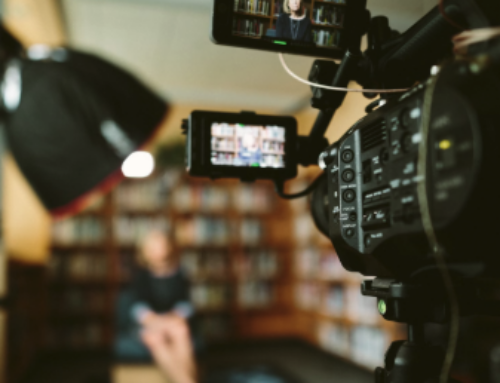 General Overview
General Overview
So, what exactly do studies surrounding the idea of listening to music while reading cover? Well, many studies examine how and if there are benefits, and also observe the negative effects that it may have on an individual. In some cases, music has shown to have helped mitigate anxiety, making it useful when reading in an environment containing potential stressors.[1] On the other hand, previous studies had been unable to detect any influence on one’s behaviors and outcomes from such when it comes to absorbing the information and effectively integrating it into academic settings through this gained knowledge.1 However, because of the advancements in recent years that have allowed scientists to utilize e-book technology and examine variables like an individual’ reading rate, it has become possible to track outcomes in real-time.1 In doing so, they can not only examine the benefits, but also the negatives of listening to music while reading, such as impaired performance overall. In this blog, we’ll examine both sides of the topic and convey an understanding of why exactly the subject is complex and/or inconclusive.
The Good
Firstly, various studies have shown different ways in which reading with music could benefit one’s reading experience, many of which specifically observed the performance of students. One study in particular conveys how Mozart’s music had positive effects in many variables of students’ reading, where it helped in, “…reducing learning anxiety, and improving the students’ reading rates, reading comprehension and direct process performance.”[1] This then allows teachers to implement the aspect of classical music within their students’ reading, potentially enhancing their outcomes and bettering their reading experiences, overall.
Another study examines how different genres of music affect students’ reading comprehension and aid those that specifically struggle with this aspect. As a result of their findings (high significant differences between pretest and post-test scores), the researchers designed a proposed reading remediation program using three specific genres–Jazz, Pop, and Classical–to serve as reading aids and supplements for students.[2] Because of these findings, educators can experiment with these different genres and observe how their students benefit from them in the classroom, as well. In this, they can implement new ways of strengthening their students’ reading and provide tools such as music that could help their experience in the long run.
The Bad
While the above may appear to be positive influences, there are also various negative attributes associated with listening to music while reading. One study examines such through the impaired performance that can occur when doing this activity. Specifically, they work to address the irrelevant sound effect (ISE) paradigm, where the presence of background music alluded to this concept as it conveyed results supporting the auditory distraction phenomena.[3] With this, the researchers were able to identify the existence of poorer performance when comparing the background music to a quiet and controlled environment.[3] The aspect of poor performance is a common trend amongst the negative findings with the topic, specifically when discussing the comprehension and retention of information after reading.
When observing the negative effects of specific genres of music, one study found that music with lyrics was often the most detrimental to one’s reading. The researchers conveyed how these findings strengthened the aspect of the distracting effect of background music, thus creating an ineffective environment for more impactful means of comprehension and literacy.[4] Another interesting aspect of these findings is the metacognitive association with such, where many of the participants had found that the presence of instrumental music was more beneficial, yet there were insufficient findings within the study to prove that this music had more positive effects on the readers, overall.[4] Because of this, researchers within the study were unable to identify solid evidence of positive effects, alluding to the more distracting effects it has on a reader.
Everything in Between
The above concept of metacognition in relation to the topic is one of the main reasons as to why inconclusive findings exist. Even with the mixed findings detailed by researchers, many students continue to report positive attributes in listening to music while reading and/or studying.[4] This not only indicates the metacognitive effect of such, but also the individualized nature of the subject, where more general findings cannot account for each individual based upon their unique attributes, needs, environment, etc.
In relation to this concept is the element of creating less distraction for some individuals with environments that may contain different stressors. One study indicates that while listening to music when reading can reduce reading comprehension performance, many participants had instead used the background music in order to alleviate outside distractions.[5] Such helps to allude to the individualized nature of this topic, since many students may not necessarily be looking for background music to enhance their cognition, but are utilizing it to mediate their task performance through mood instead.[6]
So what are your thoughts on the topic? Do you find listening to music while reading beneficial, or perhaps distracting? Does the genre of music matter to you, where you find instrumental music to help your focus rather than lyrical? All in all, the subject seems to vary greatly depending on the individual, thus representing the inconclusive nature of these studies when examined collectively.
How Does PSG Fit In?
Publishing Solutions Group understands the importance of inviting a well-rounded perspective on all subjects, much like the topic of listening to music while reading. With this knowledge and years of experience, we strive to serve our clients’ needs and work together to edit and polish content needed to help students thrive in their learning environments.
[1] https://search.ebscohost.com/login.aspx?direct=true&AuthType=ip,shib&db=asn&AN=122353863&site=ehost-live&scope=site&custid=shapiro
[2] https://doi.org/10.5281/zenodo.6973601
[3] https://doi.org/10.1002/acp.2994
[4] https://journalofcognition.org/articles/10.5334/joc.273
[5] https://pmc.ncbi.nlm.nih.gov/articles/PMC11027201/
[6] https://www.tandfonline.com/doi/abs/10.1080/03055690220124551
Photo free to use under Unsplash license.



